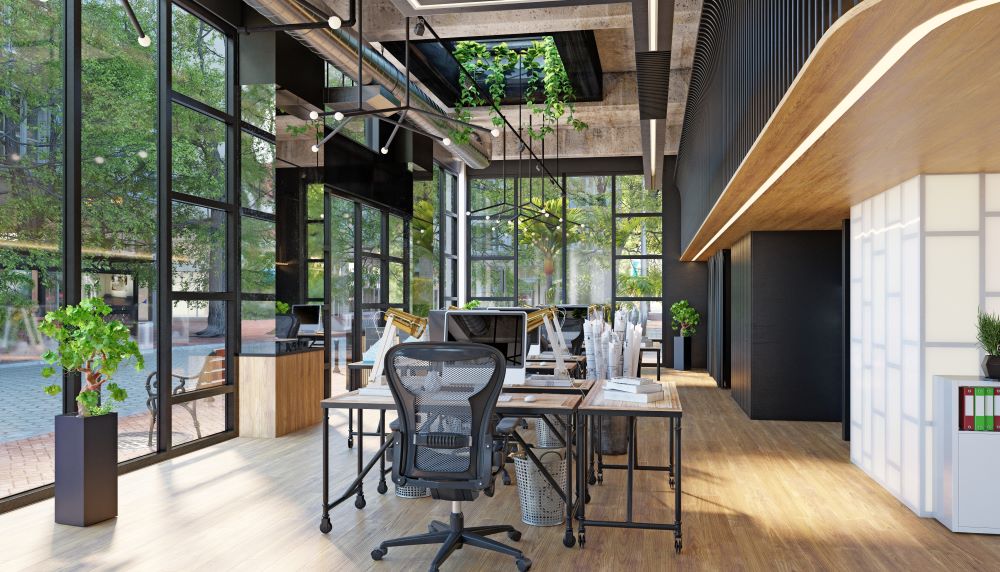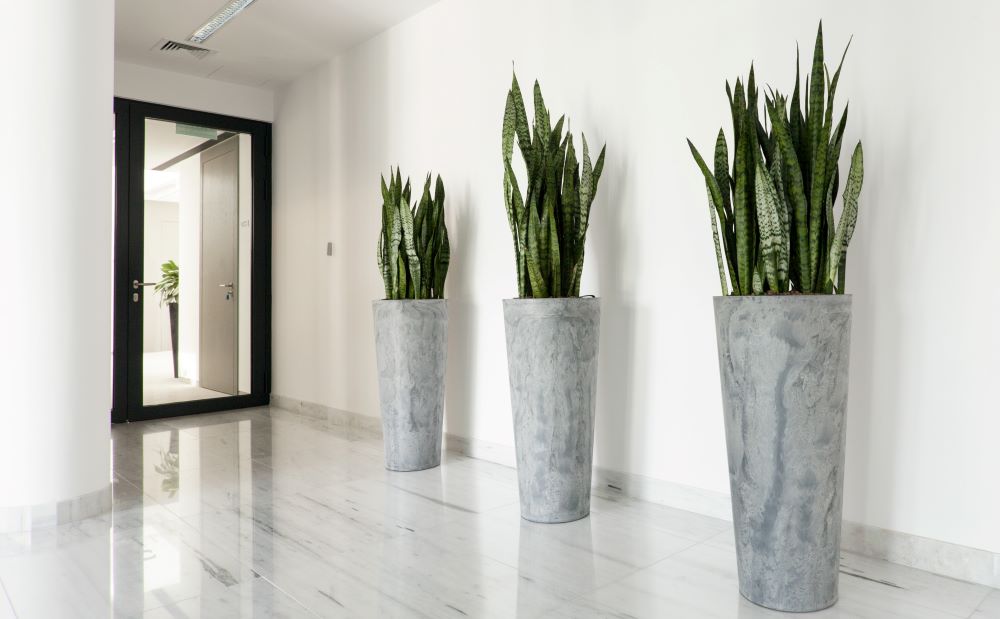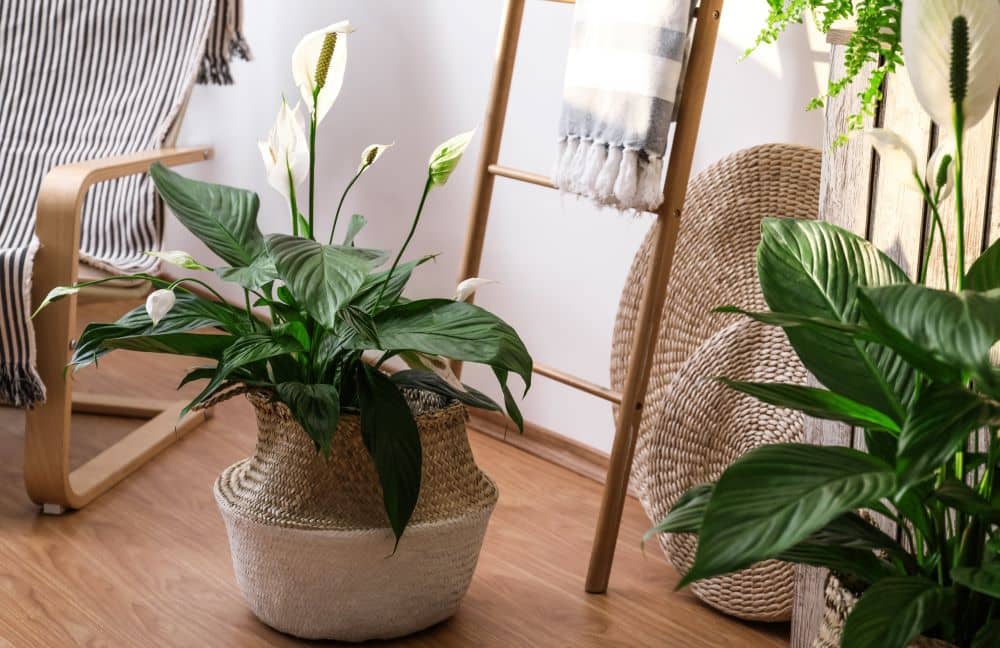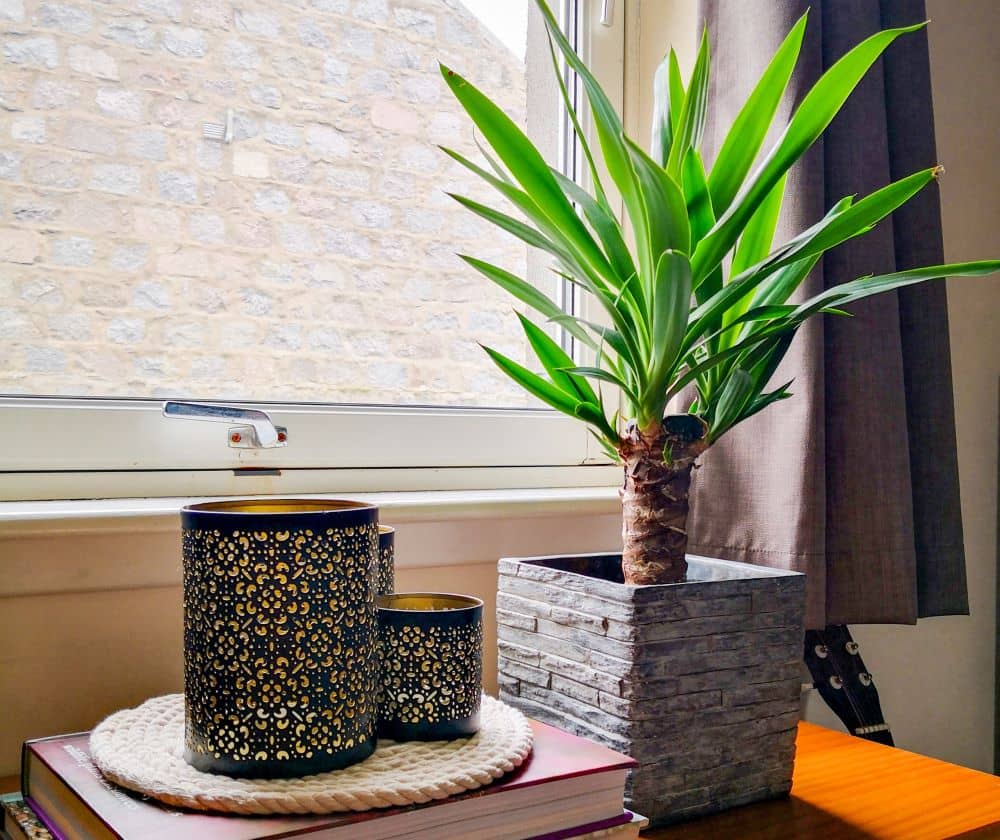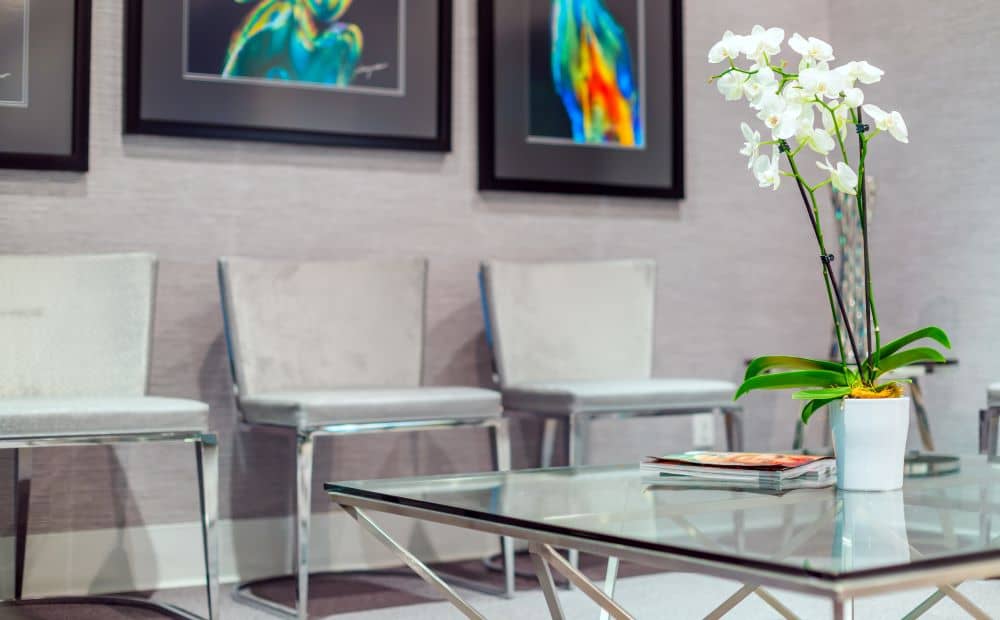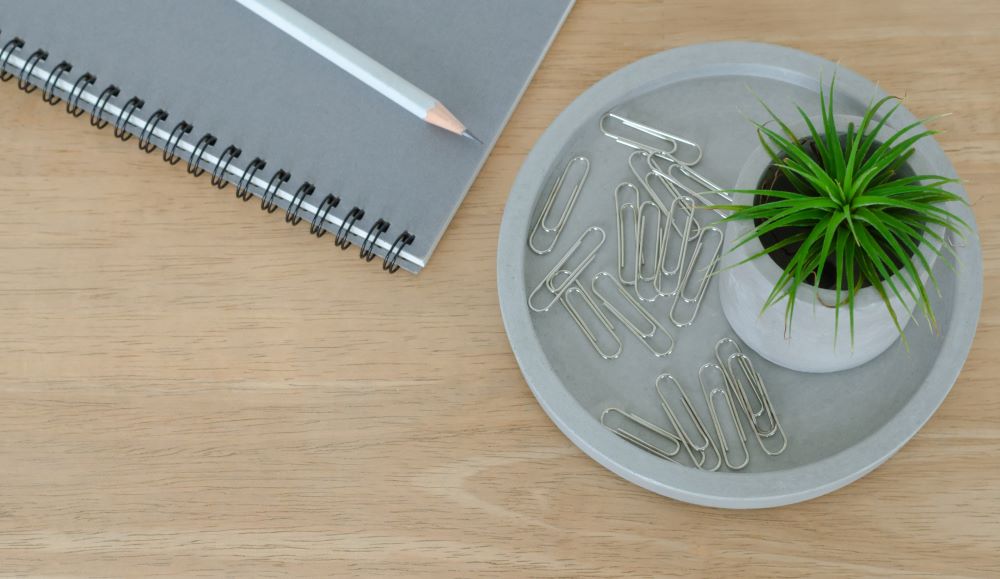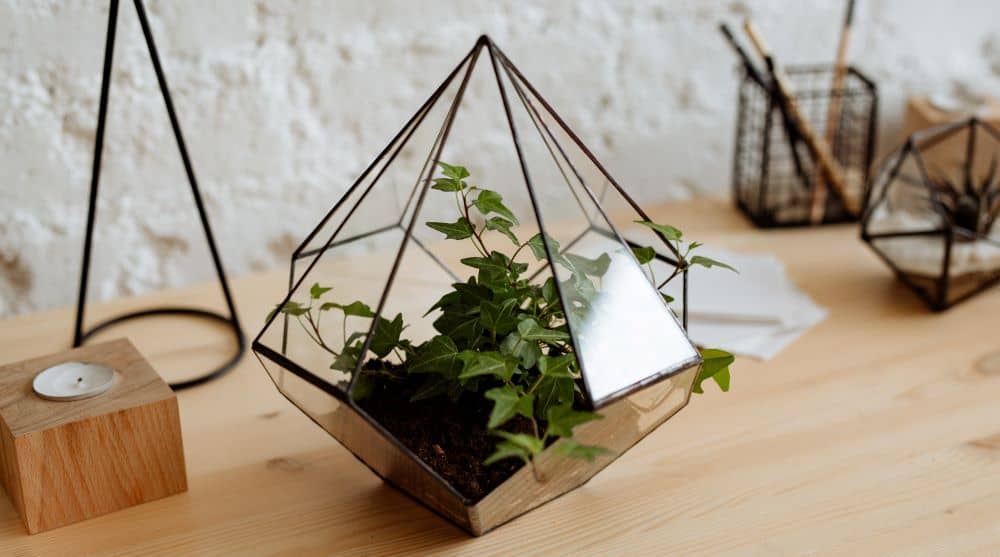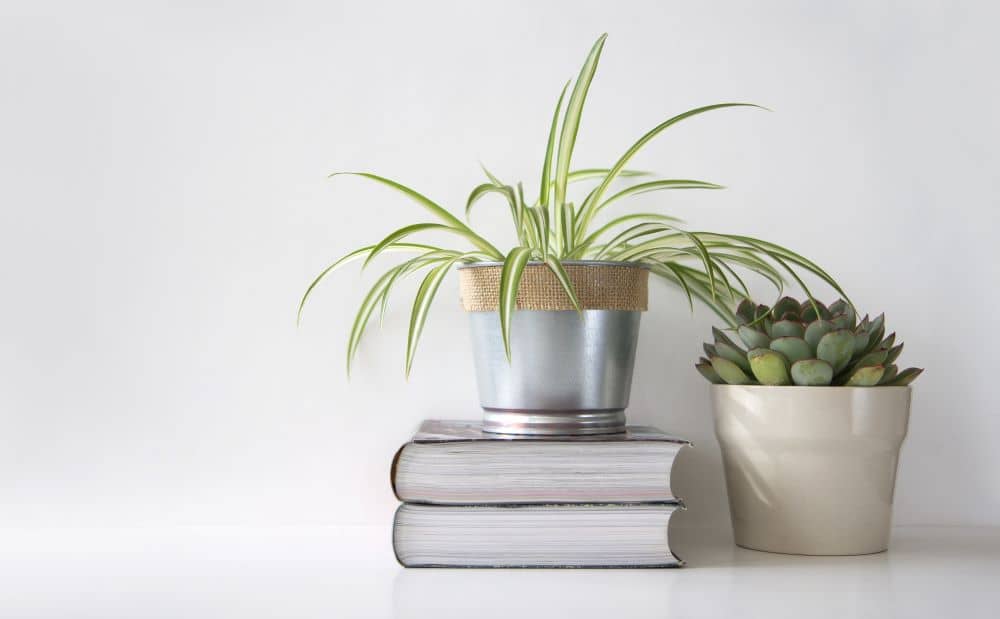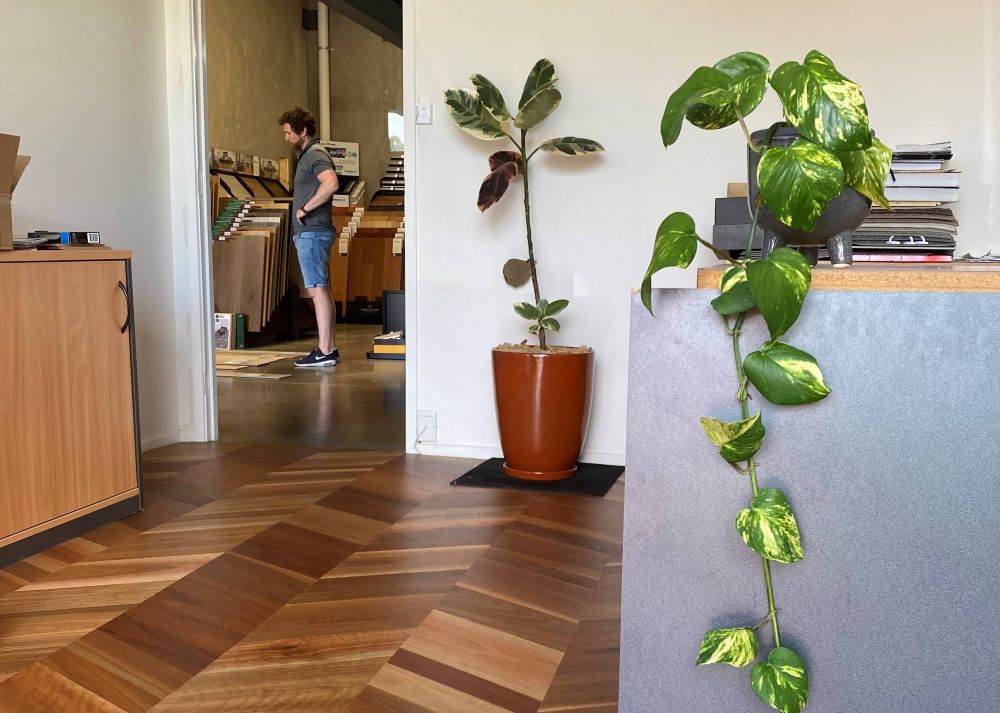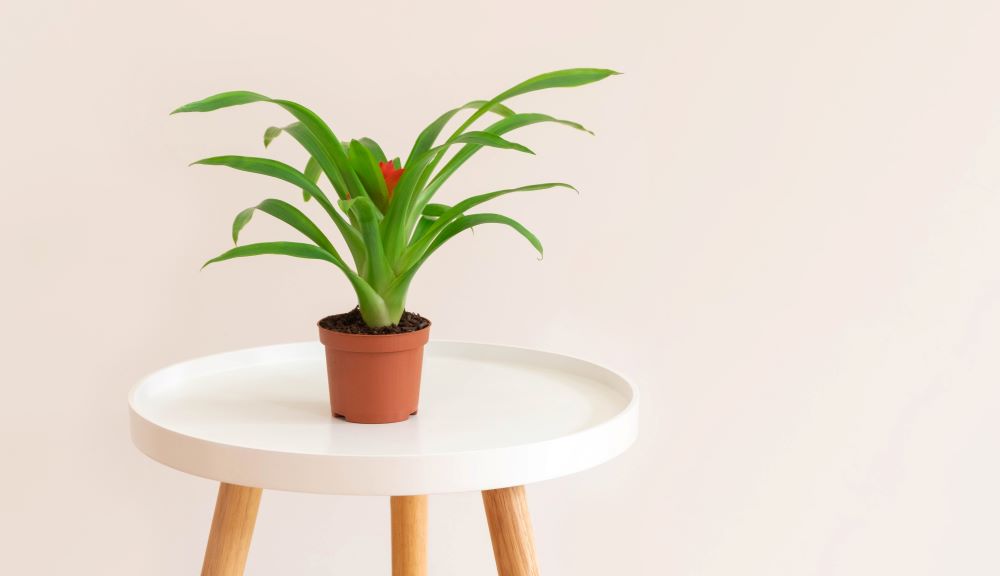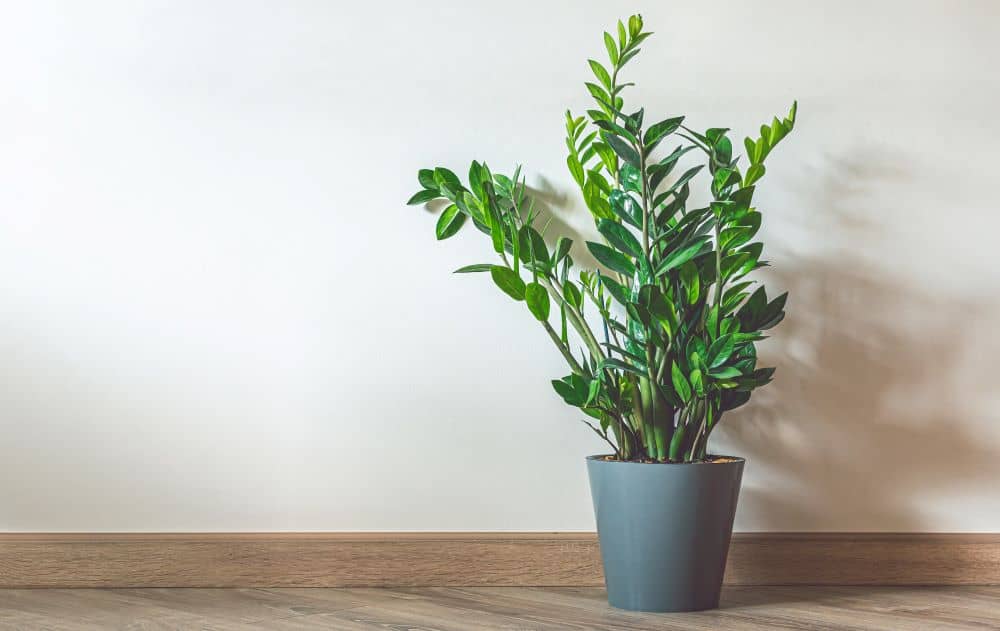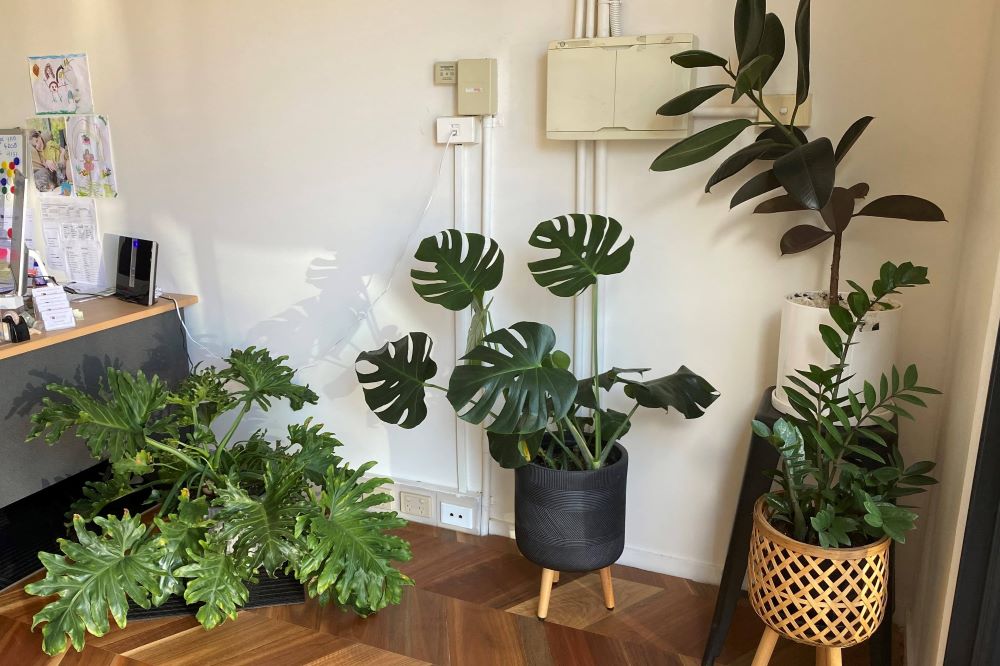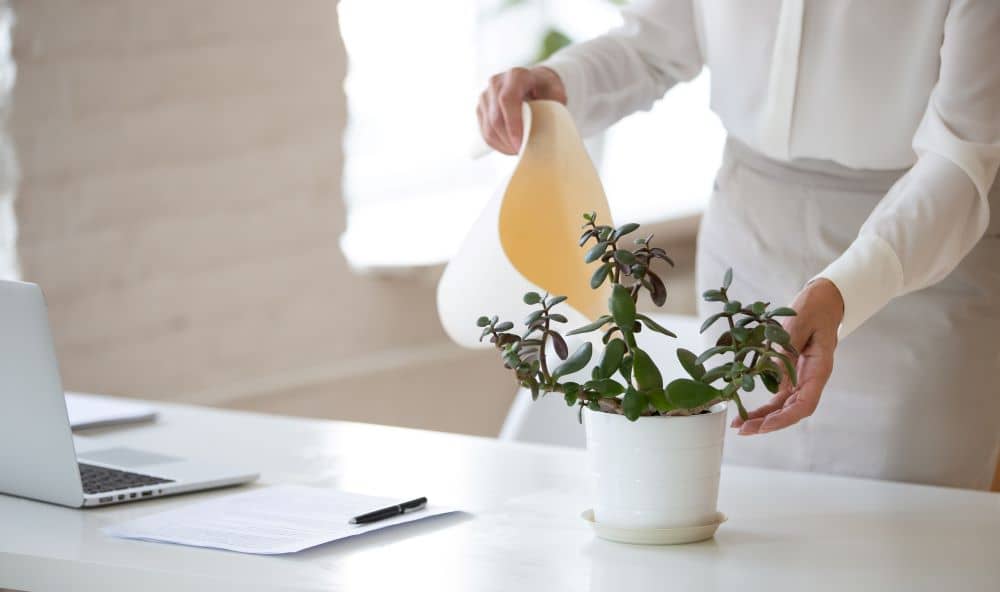Have you wanted to decorate your office with plants but weren’t sure what types of indoor plants are best for an office or how to care for an office plant? Good news! There are a wide variety of indoor plants that are well-suited to the specific conditions of an office setting.
Here, we’ll talk about the best indoor plants for Australian offices, the benefits of having plants in your office, and how to care for office plants.
What Are the Benefits of Decorating Your Office With Plants?
Much like decorating your home with indoor plants offers a variety of benefits, using plants in your office also offers benefits, most of which have scientific proof to back them up. Better yet, all of these benefits apply to home offices as well!
Benefits of office plants include:
1. Aesthetic Appeal
Adding indoor plants to your office space is an easy way to add personality and style to your office. Indoor plants instantly brighten a room, add a pop of colour that goes with any design style, and add vibrancy.
2. Boosted Productivity
Office plants don’t just look lovely; they may even help you perform better at work. One study found that workers who were surrounded by plants in an office setting exhibited lower blood pressure and improved task completion speed! Workers also reported feeling more attentive when surrounded by plants.
3. Add Inviting Warmth
Many offices feel visually cold, plain, and even downright boring, but indoor plants can instantly add inviting warmth and a cosy feel to any office.
4. Promote Calm Feelings and A Sense of Comfort
Being surrounded by natural greenery can help clear your mind, much like taking a walk in nature. Office plants can help facilitate a soothing, calm, serene setting to help combat stress and increase overall comfort.
5. Natural Humidifiers
Since they lose 90% of their water through transpiration, office plants act as natural humidifiers. This is particularly helpful in offices that tend to be cold, uncomfortable, and dry or during the winter months or during summer days when the air conditioning is constantly running.
6. Welcoming Setting
Looking to make your office welcoming and friendly? Office plants are a great way to help your office give off an inviting atmosphere. Whether you are often meeting new clients or meeting with co-workers, office plants can help add a welcoming, relaxing touch to your space.
7. Increased Creativity
Nature is known for its ability to help nurture creativity and concentration. Bringing a bit of the outdoors in by adding indoor plants to your office can be a great way to feel more relaxed, productive, and creative.
8. Cleaner Air
Objects like computers, printers, photocopiers, and computers can pollute the air in an office, filling it with toxins and carbon dioxide. Some studies suggest that office plants can help naturally absorb these volatile organic compounds (VOCs), making the air in your office healthier.
Which Plants Are Best for Offices & Your Home Office?
When it comes to choosing the best plants for your office, be sure to carefully consider a species that will thrive in an indoor environment. Generally, plants that require low maintenance, can handle low light, require minimal care, and prefer warm environments make good options for office plants.
Here are our top recommendations for the best plants that will survive in an office setting and how to keep office plants alive.
1. Snake Plants (Mother-In-Law’s Tongue)
One of the best indoor plants for offices with low light is the snake plant, also known as mother-in-law’s tongue. This hardy, beautiful plant is especially tolerant of lower light and infrequent watering. Snake plants are also well-known for their powerful air filtering abilities.
2. Trailing Plants
If space in your office is limited, consider trailing plants such as devil’s ivy, chain of hearts, or mistletoe cactus to spill over the edge of a desk, bench, or shelf.
3. Peace Lily
If you are looking for an office plant that will handle low light, the snake plant isn’t your only option. With frequent blooms and glossy foliate, the peace lily adds beauty to office settings with limited natural light.
This low-maintenance plant requires little care, minimal water, can thrive in lower levels of light, and helps naturally purify the air. Avoid placing a Peace Lily in direct sunlight as it prefers low light.
The peace lily also does an exceptional job of handling the cold, dry air in air-conditioned offices. They love cool weather best, so it is recommended to keep peace lilies in the shade and out of direct sunlight.
4. Fiddle-Leaf Fig
Fiddle-leaf figs are a trendy, beautiful plant that makes a perfect addition to an office desk. They prefer indirect light and need to be watered when the top inch of soil becomes dry. It also helps to clean the leaves now and then by wiping them with a damp cloth.
5. Yucca
Yucca, originally a desert plant, is hardy and drought-tolerant. As they prefer sunlight, yuccas are best-suited to offices with ample natural light. Occasional water is all that is required as yuccas do not do well when over-watered.
6. Cactus
Cactus plants are an ideal choice for a desk next to a small windowsill. While they do require a source of bright, indirect light, their maintenance needs are almost non-existent other than that. Simply water them occasionally during summer and hardly at all during the winter months.
7. Janet Craig
Janet Craig plants are quite easy to care for and a beautiful addition to any office. They have the potential to grow fairly large, so they are better suited to the floor rather than a desk.
8. Orchid
While you may have heard otherwise, orchids are a great low-maintenance plant that can add elegance to an office. With 2 to 3 tablespoons of water every couple of weeks, natural light, and good airflow, orchids can thrive and add beauty and liveliness to your office.
9. Bamboo Palm
Looking to add a tropical vibe to your office? The Bamboo Palm adds an instant tropical feel to any space. Bamboo palms can also handle the low light conditions often found in offices, unlike other varieties of palms. They may also help filter formaldehyde and Xylene from the air and act as natural humidifiers.
10. Maidenhair Fern
Maidenhair ferns are a delicate, appealing choice for a desk plant. Just remember to water them regularly as they tend to dry out fast, particularly in air-conditioned offices.
11. Air plants
Although they can be harder to find, air plants are well-suited to office environments as they can survive pretty much anywhere. All air plants need is fresh air and the occasional spritz of water.
12. Aspidistra
If you enjoy the look of lush, leafy greenery, Aspidistra is a great desk plant for an office. Also named the ‘cast-iron’ plant, Aspidistras are a perfect plant for office settings as they are low maintenance, practically indestructible, tolerant to changes in temperature, and require minimal water and sunlight.
13. Terrariums
Terrariums practically have their miniature eco-system, making them a charming, unique, excellent desktop plant that requires little care. They only need to be watered once they are nearly dried out.
14. Rubber Tree Plant
If your office is well-lit and you feel confident caring for plants, the rubber tree is a fun option to consider. Growing fairly tall with broad, flat leaves, a rubber tree plant can add some boldness to your office with shades of vibrant purples and greens. Rubber plants require weekly watering and prefer to be near bright windows (taking care not to expose them to direct sunlight).
15. ZZ Plant
ZZ plants can hold up well to a fair amount of neglect and require minimal watering, making them a good choice for busy workers that still want to enjoy the benefits of an office plant.
16. Aglaonema
Need an office plant that practically tells you how to take care of it? Meet the aglaonema. This attractive plant features variegated green leaves with white speckles that droop when they need watering (typically about once a week).
17. Aloe Vera
Aloe is a classic low-maintenance indoor plant that simply requires ample natural light and infrequent watering. Aloe vera works well as a desk or floor plant.
18. Spider Plant
The spider plant, a popular, rugged indoor plant, can endure tough conditions while absorbing harmful toxins from the air. These elegant, easy-to-care-for plants add beauty.
19. Norfolk Island Pines
Norfolk Island pines can survive indoors throughout the year and are perhaps one of the most unique office plant options on our list. Norfolk Island pines are perfect for empty corners or awkward empty spaces in an office.
20. Devil’s Ivy
As long as your office receives some natural light, Devil’s ivy can make a great plant for your desk. Aside from bright, indirect light, it only needs to be watered when the soil gets dry.
21. Bromeliads
Bromeliads come in a range of foliage colours, sizes, and shapes, making them a fun plant to decorate an office with. They are also hardy indoors, especially humid and warm offices. They also prefer good air movement. They may need extra attention and care during hot weather or heated offices.
22. Walking Iris
Walking Irises, sometimes known as Apostle Plants, are hardy and stunning, with sword-like leaves that can reach lengths of up to 60cm. They grow fragrant, orchid-like flowers that bloom for a day.
23. Madagascar Dragon Tree
A popular office plant, dragon trees are attractive, tall, and feature green and pink leaves that add a subtle pop of colour to brighten up drab office spaces. Ample light maximises their beautiful leaf colouring.
24. Zanzibar Gem
Rounding out our list is Zanzibar Gems, one of the easiest office plants to care for. It is amazingly tolerant of neglect and can grow in shaded, dry areas.
With unusually striking foliage, they make a great office plant for adding brightness and vibrancy to a normally plain room. Clean the leaves occasionally with a damp cloth and water less often in winter to keep your Zanzibar gem healthy.
How To Decorate With Office Plants
Ultimately, decorating with office plants comes down to personal design style and preference. Have fun mixing and matching different varieties of plants in pots with different colours and shapes.
Hanging plants work especially well in offices that do not have extra floor or desk space. They can be hung above filing cabinets, in low-traffic areas, near a window, or in a corner.
Floor plants work excellently in offices with a bare corner to fill or a lot of space. Desk plants are a great way to add a touch of nature right next to you as you work, bringing the benefits of office plants as close to you as possible.
We love a mix of desk plants, floor plants, and hanging plants to add variety, interest, and visual appeal.
How To Care For Office Plants
Caring for an office plant is fairly straightforward and requires minimal maintenance.
To keep your office plants alive, here are some tips for caring for your office plant:
- Pay attention to each plant’s light and water needs as this will vary according to species.
- Water your office plants slowly when the top of the soil starts feeling dry to the touch.
- Do not allow plants to sit in standing water. Only water enough to trickle through the drainage holes (excess water can be dumped from the drainage tray after several minutes).
- If a plant prefers a lot of light, be sure to situate it near a window (a fluorescent light placed near the plant is the next best option).
- Fertilize your plants once every other month during spring and summer months according to the instructions of general, water-soluble fertilizer.
- Water after fertilizing to prevent root damage.
- If a plant becomes too large for its pot (typically every couple of years), transplant it to a pot one size larger.
- Avoid placing your plant too close to drafty windows, heating vents, or air conditioning units.
- If you are on vacation or sick, ask a co-worker to water your plant as needed.
- Protect your office flooring from leakage from plants by cleaning up any spills immediately, especially if you have timber flooring or laminate flooring. Luxury vinyl floors or hybrid flooring are waterproof or water-resistant and can handle sitting water for a certain period without damage, but it is still imperative to wipe up spills quickly.
- If there is little light in your office or just a small window, rotate your indoor plants on occasion to help make the most of the light you do have.
What Are Your Favourite Office Plants?
Do you have plants in your office? If so, do you have any favourites? We would love to hear from you, especially if we missed any indoor plants you’d like us to add to our list of the best office plants.


